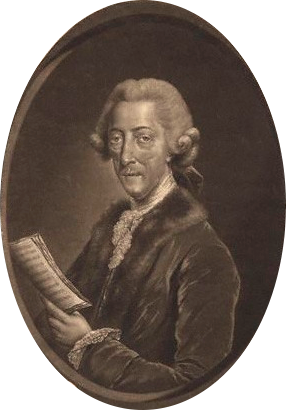Arne Sheet Music and Biography

12 March 1710- 5 March 1778
Thomas Arne was an English composer born on 12 March 1710. He is famous for his patriotic piece ‘Rule Britannia‘.
In Great Britain, Rule Britannia is traditionally sung on The Last Night of The Proms and by crowds at Rugby matches.
We have over fifteen arrangements of Arne’s Rule Britannia Sheet Music on music-scores.com.
Early Life
Arne’s father and grandfather were upholsterers and wanted Thomas to study law. However, on discovering Thomas’s talent, and his leadership of a group of musicians his father allowed him to leave law and follow his passion.
Musical Passion
Arne’s love for music resulted in him becoming a bit sneaky:-
- As a boy, he would smuggle an instrument (a spinet) into his bedroom at night and smother the sound with a handkerchief so as not to wake his family.
- When he was older he dressed as a liveryman to gain access to the opera. It was here that he met Michael Festing who became his teacher and took him to many musical events.
- During his studies in law he secretly practiced the violin.
Working Life
Arne taught his sister and brother to sing and they both performed in his early work in 1733 including Rosamond. Between the years 1733 and 1776, Arne wrote ninety pieces for the stage. As his works became popular he was awarded the patronage of the Prince of Wales. At the Prince’s home in Cliveden, Arne debuted the Masque of Alfred including Rule Britannia.
Family
Between 1737 and 1755, he was married to the singer Cecilia Young whom he alleged was mentally ill during their separation. He then entered a relationship with one of his students; soprano Charlotte Brent who appeared in some of his works. A year before his death Arne and Cecilia reunited and had a son Michael Arne who became a composer.
Arne died on 5th March 1778, a week before his sixty-eighth birthday.
If you feel like a lift, listen to Thomas Arne’s Rule Britannia:
Arne Sheet Music Downloads & Further Reading
On music-scores.com we have twenty downloads of Thomas Arne Sheet Music in PDF format for you to download.
For further information take a look at Wikipedia and Britannica.
Pingback: History of the Proms